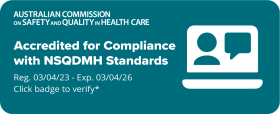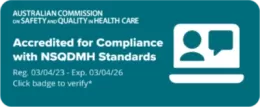Accessibility Tools
- Content scaling 100%
- Font size 100%
- Line height 100%
- Letter spacing 100%
Self-stigma
Quick Facts
- One of the hardest parts about receiving a mental health diagnosis is learning to understand it as an aspect of your identity. When we feel unsure about a feature of ourselves, it can sometimes feel easier to pretend it doesn’t exist, especially if we’re afraid of how others will perceive us.
- When experiencing complex mental health issues, it can be a challenge to not internalise these fears. Fears can be expressed in the form of shame, embarrassment and avoidance, all of which are symptoms of self-stigma.
- Stigmatising yourself can have serious implications – both for your self-esteem and your willingness to seek help when you need it. Learning how to tackle self-stigma and develop the necessary skills to support yourself is crucial, both for improving your quality-of-life and to maintain your wellbeing.
Self-stigma reflects negative, culturally-generated stereotypes, beliefs and emotions about a specific feature shared by a group of people.
Negative social attitudes towards people living with mental illness include the false beliefs that they are threatening, less competent than those who don’t live with mental illness, or that they are to blame for their conditions. People who accept these stereotypes and respond negatively to people with mental health issues are expressing public stigma.
Self-stigma occurs when a person with a stigmatised trait internalises these negative stereotypes, and/or chooses to conceal their identity for fear of being stigmatised by others.
In either case, a common response is to avoid being associated with this characteristic. For example, one may avoid seeking professional support to distance themselves from a label or withdraw socially so as to not be stigmatised by others. Although these avoidant behaviours may relieve discomfort in the short-term, they don’t allow the person affected to tackle the underlying issues.
Stigma is society’s problem. Those on the receiving end are not responsible for it. We each have the capacity to educate ourselves and others in order to halt the perpetuation of stigma.
No one should have to deal with stigma and self-stigma. But when people with complex mental health issues do internalise stigma, it is vital to defy those beliefs in our minds. It is only by taking these difficult first steps that we can lead the happy and healthy lives we deserve.
Because self-stigma is often unconscious, it can be hard to tell it’s taking place. Keeping an eye out for common signs – such as negative self-talk and social withdrawal – and beginning to gently challenge and reframe these pessimistic thought patterns is a good way to tackle self-stigma.
Some common examples are explored below:
-
I don’t want to be different.
Many people with mental health issues feel isolated by their experience. However, in reality, a large proportion of the Australian population have personal experience of mental illness.
In 2018, approximately 20% of Australian adults experienced a mental health issue. Forty-five percent are expected to deal with mental illness at some point in their lifetime. Hence, almost 1 in 2 people will grapple with these issues at some stage in their lives. Your experiences do not make you strange or different, and you are by no means alone. -
Other people won’t understand, so it’s better if I don’t tell them.
Social withdrawal can be a serious problem for those living with complex mental health issues. In many cases, people fear others will not understand their experience and stigmatise them for it. To combat fear of rejection, many people remove themselves from social situations in order to avoid disclosing their condition to others.
Although this strategy may temporarily quell the fear of ostracisation, it is not a productive or long-term solution. In fact, studies show that people who willingly reach out and seek help experience drastically less loneliness than those who are unwilling.
Be gentle with yourself. Consider how you would treat a close friend in the same position. Treat yourself with the same level of patience and kindness – and give those around you the chance to do the same. If in doubt, remember to reach out to the services available to you. Explore ways to socialise that help you feel comfortable, safe and supported.
-
I’m not sick enough/I’m too sick to benefit from treatment.
It can feel very daunting to reach out for help, especially if you fear being told your experience is too mild or too severe to warrant assistance.
The reality is that no two experiences will be the same. Levels of severity do not dictate or invalidate your experience, nor exempt you from the right to access help. You are always worthy.
Try to think about mental health in the same terms as physical health. For example, if you broke your leg, you wouldn’t hesitate to have a professional take care of it – mental illness should be no different.
-
If I ask for help, I am weak.
Seeking help is never a sign of weakness. Rather, it’s a sign of courage. Everyone needs help at times and learning to ask for it is never something to feel ashamed of. It’s just one of many important examples of ‘self-care’ – like exercising, eating well and getting enough sleep.
Making changes to the way you think about and talk to yourself can be difficult. It requires perseverance. These changes take time and it’s important to be gentle with yourself as you challenge any negative self-talk.
Most importantly, remember to check in with yourself regularly, and seek support from those around you. You can get in touch with SANE's free counselling service to speak to a trained counsellor. Call the SANE helpline on 1800 187 263 or send us an email at This email address is being protected from spambots. You need JavaScript enabled to view it..
And to connect with others who understand because they have a shared experience of mental health challenges, visit our safe and anonymous online Forums. Chat with members about life in general, mental health, or experiences like stigma and self-stigma.
Australian Institute of Health and Welfare. (2018). Mental health services in Australia in brief 2018. Retrieved from https://www.aihw.gov.au/reports/mental-health-services/mental-health-services-in-australia-in-brief-2018/contents/table-of-contents
Corrigan, P. W. (2004). How stigma interferes with mental health care. The American Psychologists 59(7), 614-625.
Corrigan, P. W., River, L., Lundin, R. K., Uphoff Wasowski, K., Campion, J., Mathisen, J., et al. (2000). Stigmatizing attributions about mental illness. Journal of Community Psychology, 28, 91–102.
Holubova, M., Prasko, J., Ociskova, M., Kantor, K., Vanek, J., Slepecky, M., & Vrbova, K. (2019). Quality-of-life, self-stigma, and coping strategies in patients with neurotic spectrum disorders: A cross-sectional study. Psychological Research and Behaviour Management, 12, 81-95.
Prince, J. D., Oyo, A., Mora, O., Wyka, K., & Schonebaum, A. D. (2018). Loneliness among persons with severe mental illness. The Journal of Nervous and Mental Disease, 206(2), 136-141.
Pryor, J. B., & Reeder, G. D. (2011). HIV-related stigma. In J. C. Hall, B. J. Hall & C. J. Cockerell (Eds.), HIV/AIDS in The Post-HAART Era: Manifestations, Treatment, and Epidemiology (pp. 790-804). Shelton, CT: PMPH-USA.
Thornicroft, G. (2006). Tackling discrimination. Mental Health Today, 2006 (Jun), 26-29.
Wallin, E., Maathz, P., Parling, T., & Hursti, T. (2018). Self-stigma and the intention to seek psychological help online compared to face to face. Journal of Clinical Psychology, 74(7), 1207-1218.
Download the self-stigma factsheet.
Author: Sophie Raphael, SANE Peer Ambassador.
The production of this fact sheet was supported by Future Generation Global, in partnership with batyr.
Latest Discussions on the Forum
Latest discussions on the forums

Carers
For anyone who cares about or for someone living with a mental health issue
Connect with others
Ways we can support you
Choose from a range of support services, including counselling, peer support, online groups and events, 24/7 community forums, and online information and resources.
Online Forums Community
Available 24/7. SANE’s online community forums provide a safe, non-judgmental space to share your experiences, seek advice and surround yourself with support.
Talk to a Mental Health Professional
Available Monday to Friday, 10am - 8pm (AEST/AEDT). SANE’s team of trained staff and volunteers provide free support, information, and resources. Call 1800 187 263. Free Translating and Interpreting Service (TIS) available on 131 450.
Additional guidance and support
Available Monday to Friday, 10am to 8pm (AEST/AEDT). Work with a dedicated support team to identify your goals and tailor a support plan that's right for you. Choose from a range of supports, incl. multi-session counselling and peer support.
Weekly Online Discussion Groups
Every Thursday at 7pm (AEST/AEDT). Weekly online discussions, guided by SANE peer support workers and supported by counsellors. New topics each week.
Monthly Live Educational Events
Last Tuesday of every month, at 5:30pm (AEST/AEDT). Topic Tuesday is a live Q&A discussion. Each month a different topic is facilitated by a subject matter expert, a community manager or moderator, and supported by a peer support worker.
Information and Resources
Available 24/7. Access information you can trust on complex mental health issues. SANE factsheets and guides are easy to read and can help you understand what’s happening and what strategies can be helpful.
Guidance for supporting someone at risk of suicide
Available 24/7. A resource that provides information and advice about supporting someone who has attempted, or is at risk of attempting, suicide.
Get Creative with SANE
The arts have the power to move, to heal and to help us understand ourselves and each other. SANE Create programs provide an outlet to engage with creative activities.
Peer Guide training and mentoring
Receive guidance and support to develop the skills to use your personal mental health experiences as a peer support worker, building confidence and readiness for employment or further education.
Have questions? Click here to read our FAQs or email us at getsupport@sane.org

Together we can change lives
Help us provide free essential mental health support and create brighter futures for people with complex mental health issues. Make a tax deductible donation today.
DonateStay in touch
Never miss an important update from SANE.
Help us push aside the stigma and discrimination surrounding complex mental health and change the way people talk about, and care for, mental illness.





SANE acknowledges the Aboriginal and Torres Strait Islander peoples as traditional custodians of the land on which it operates. We pay respect to Elders past, present and emerging, and value the rich history, unbroken culture and ongoing connection of Aboriginal and Torres Strait Islander people to country.
SANE values diversity. We are committed to providing a safe, culturally appropriate, and inclusive service for all people, regardless of their ethnicity, faith, disability, sexuality, or gender identity.
Help us push aside the stigma and discrimination surrounding complex mental health and change the way people talk about, and care for, mental illness.





SANE acknowledges the Aboriginal and Torres Strait Islander peoples as traditional custodians of the land on which it operates. We pay respect to Elders past, present and emerging, and value the rich history, unbroken culture and ongoing connection of Aboriginal and Torres Strait Islander people to country.
SANE values diversity. We are committed to providing a safe, culturally appropriate, and inclusive service for all people, regardless of their ethnicity, faith, disability, sexuality, or gender identity.
SANE is a public company limited by guarantee and registered tax-exempt charity with DGR (Deductible Gift Recipient) status.
Charity ABN 92 006 533 606. Donations of $2 or more are tax deductible. SANE, PO Box 1226, Carlton VIC 3053.


